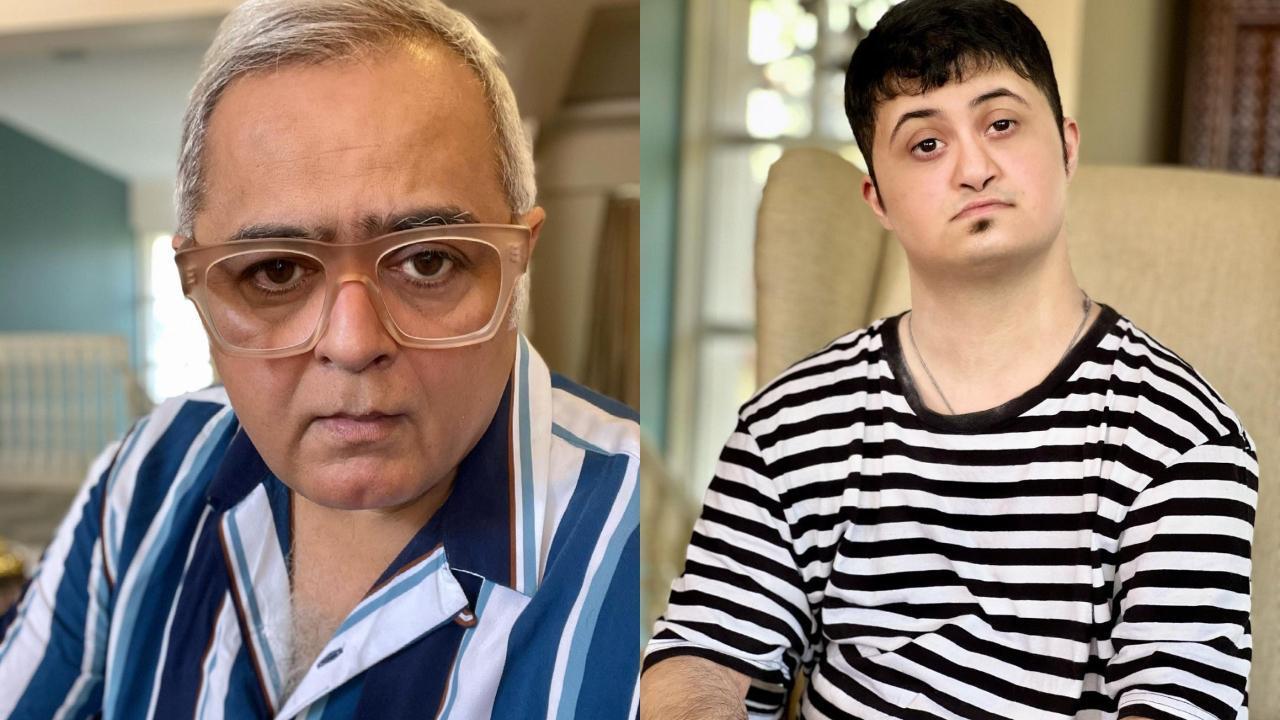
In a recent and deeply personal revelation, celebrated filmmaker Hansal Mehta shared an emotional account of his son’s unfulfilled wish to meet a popular Bollywood star. Mehta’s son, Pallava, who has Down syndrome, had longed for this meeting for years. The poignant disclosure came to light in the wake of a controversial incident involving a bodyguard of South Indian film star Nagarjuna, who was seen aggressively pushing away a specially-abled fan at the Mumbai airport.
Hansal Mehta took to X (formerly known as Twitter) to recount his experiences, following the viral video of Nagarjuna’s bodyguard shoving the fan. Mehta wrote, “True story. So my son Pallava is a fan of this massive star. I’d requested through his brother, his close friends at various times that meeting the star would mean the world to him. And it would be my gift to my boy. When his eyes were operated the first person he recognised in the newspaper was that star. But no. There was no response from the star or his friends. I gave up. Now over the years Pallu’s cognitive abilities have declined. And this will have no meaning even if it has to happen.”
The incident with Nagarjuna’s bodyguard struck a chord on social media, stirring widespread outrage and gathering thousands of views and comments. The specially-abled fan, who works at a restaurant near the airport, had approached Nagarjuna for a selfie. The moment, which was captured on video, showed the bodyguard forcefully pushing the fan away, igniting a wave of criticism and disappointment among the netizens.
In response to the backlash, Nagarjuna swiftly addressed the incident on X, stating, “This just came to my notice … this shouldn’t have happened!! I apologise to the gentleman and will take necessary precautions that it will not happen in the future!!” His prompt apology received mixed responses, with some fans appreciating his acknowledgment while others criticized the initial handling of the situation.
.
Mehta’s revelation further fueled the conversation around the treatment of specially-abled individuals by celebrities and those in positions of power. His narrative highlighted the emotional and psychological impact such interactions, or the lack thereof, can have on individuals with special needs and their families.
Beyond the personal story, Mehta is currently in the spotlight for his professional endeavors as well. He recently announced the third installment of his acclaimed series franchise ‘Scam’, titled Scam 2010. The new series will explore the story of Subrata Roy, the founder of the Sahara group, who became a significant figure in India’s corporate and legal landscape.
Discussing the new project, Mehta remarked, “Scam is not just a franchise for me. It is a chronicling of our times. I’m thrilled to collaborate again with Applause and Sony LIV to bring this larger-than-life story alive.”
Subrata Roy’s life is a compelling blend of triumphs and tribulations. He managed to expand his business empire across diverse sectors, including finance, real estate, media, and hospitality. However, his career faced severe challenges in 2014, when the Supreme Court of India ordered his detention for failing to appear in court over a dispute with the Securities and Exchange Board of India (SEBI). The legal battle led to Roy being incarcerated in Tihar Jail until his release on parole. Subrata Roy passed away in November 2023, at the age of 74.
Mehta’s personal experience and his professional storytelling both underline his engagement with real-life narratives that reflect broader societal issues. His heartfelt account of trying to fulfill his son’s dream adds a layer of personal vulnerability to his public persona, while his ongoing work continues to garner critical and popular acclaim.
As the conversation around the treatment of differently-abled individuals gains momentum, Hansal Mehta’s story serves as a poignant reminder of the everyday realities faced by many. The response and responsibility of celebrities towards their fans, especially those with special needs, remain critical in fostering an inclusive and empathetic society.












